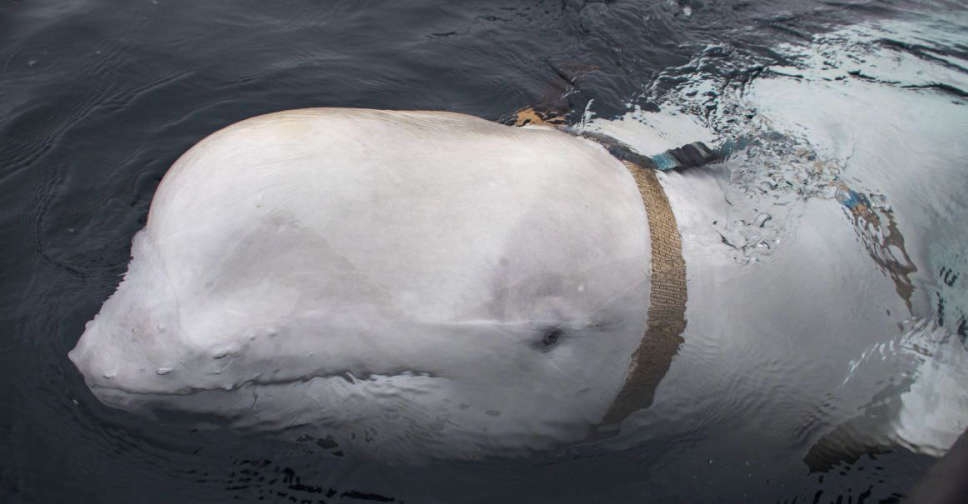
A Beluga whale that made headlines in 2019 when it was found wearing a harness in Norway, triggering speculation about its involvement with the Russian navy, has resurfaced along Sweden's coast, according to an organisation tracking its movements.
Initially discovered in Finnmark, a far northern region of Norway, the whale has been slowly traversing the country's coastline for over three years. However, in recent months, it has noticeably increased its pace, covering the latter half of the Norwegian coast and now venturing into Swedish waters.
The whale was observed on Sunday in Hunnebostrand, situated off Sweden's southwestern coast.
"We don't know why he has suddenly accelerated his journey," said Sebastian Strand, a marine biologist with the OneWhale organisation. "It's particularly surprising considering he is rapidly moving away from his natural habitat. It could be driven by hormonal changes pushing him to find a mate. Alternatively, his increased speed might stem from loneliness, as Belugas are highly social creatures. He could be searching for other members of his species."
The whale, estimated to be between 13 and 14 years old, is at an age when hormones are typically elevated, Strand added.
However, the closest population of Beluga whales resides in the Svalbard archipelago, located in the far north of Norway. Since arriving in Norway in April 2019, the whale has not encountered a single member of its species.
Norwegian locals affectionately dubbed the whale "Hvaldimir," a playful wordplay combining the Norwegian term for "whale" (hval) with a nod to its rumoured connection to Russia.
When the Beluga first appeared in Norway's Arctic region, marine biologists from the Norwegian Directorate of Fisheries removed a man-made harness attached to the creature. The harness featured a mount suitable for an action camera and bore the words "Equipment St. Petersburg" on its plastic clasps.
Officials from the directorate suggested that Hvaldimir may have escaped from captivity and potentially received training from the Russian navy, given its apparent familiarity with humans. However, Moscow never issued an official response to the Norwegian speculation regarding the whale's alleged role as a "Russian spy".
The Barents Sea, where the whale was initially spotted, is a strategically important area monitored for submarine movements by both Western nations and Russia. Additionally, it serves as a gateway to the Northern Route, which offers a shorter maritime journey between the Atlantic and Pacific Oceans.
According to Strand, the whale's health has appeared robust in recent years, as it has fed on wild fish beneath Norway's salmon farms. Nevertheless, concerns have arisen about Hvaldimir's ability to find food in Sweden, with indications of some weight loss already observed.
Beluga whales, known for reaching sizes of up to six meters and living between 40 and 60 years, typically inhabit the frigid waters around Greenland, northern Norway and Russia.




 Unclaimed luggage firm finds 'Goonies' script, Rolex, glass eye
Unclaimed luggage firm finds 'Goonies' script, Rolex, glass eye
 LeBron James becomes first male athlete with Ken doll
LeBron James becomes first male athlete with Ken doll
 Galapagos tortoises become first-time parents aged 100
Galapagos tortoises become first-time parents aged 100
 Scientists develop world’s smallest injectable, dissolvable pacemaker
Scientists develop world’s smallest injectable, dissolvable pacemaker
 From baked beans to chips, is Dubai's viral chocolate taking over global brands?
From baked beans to chips, is Dubai's viral chocolate taking over global brands?




